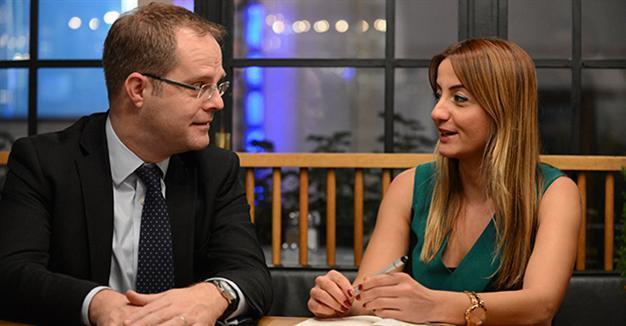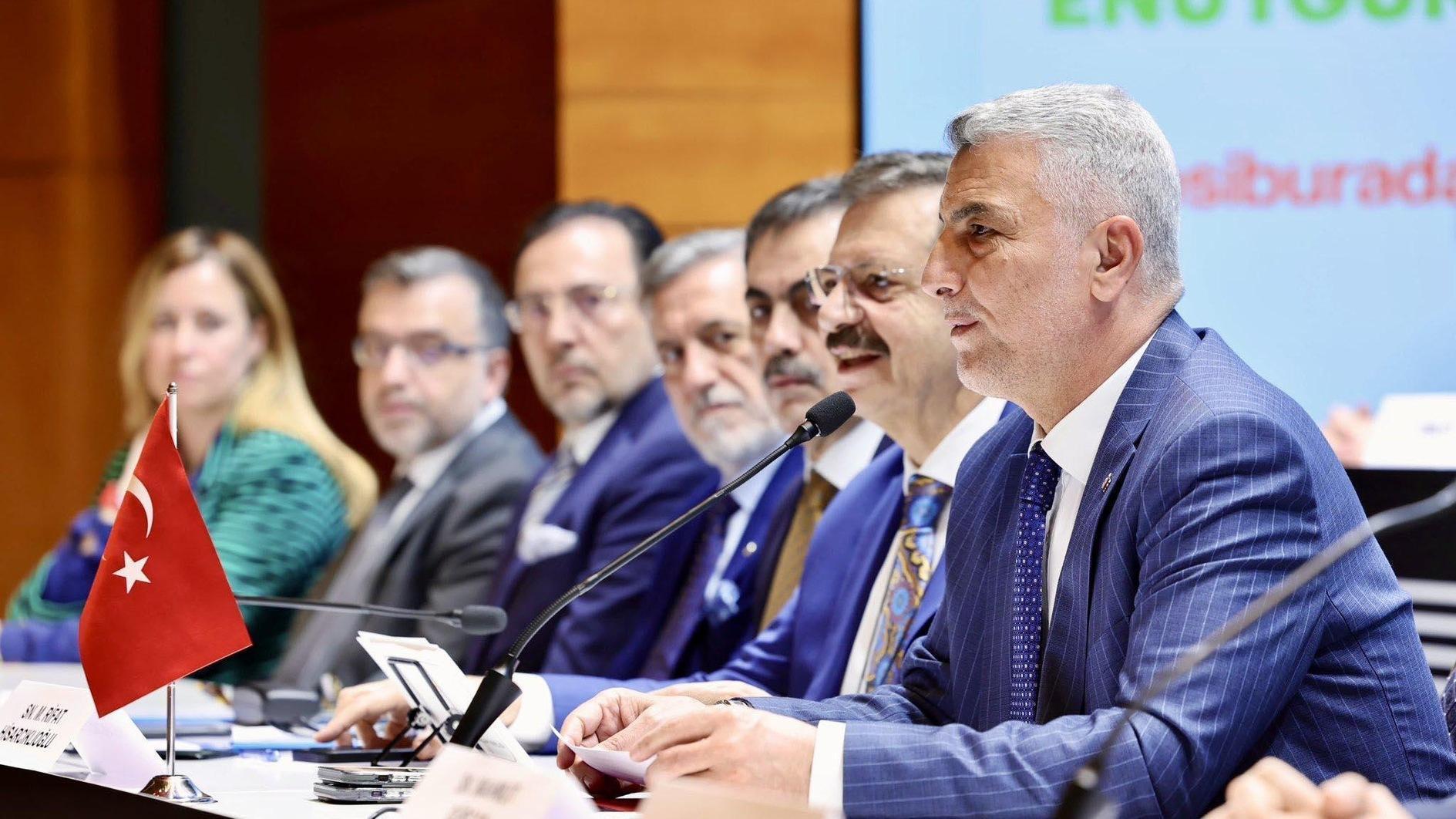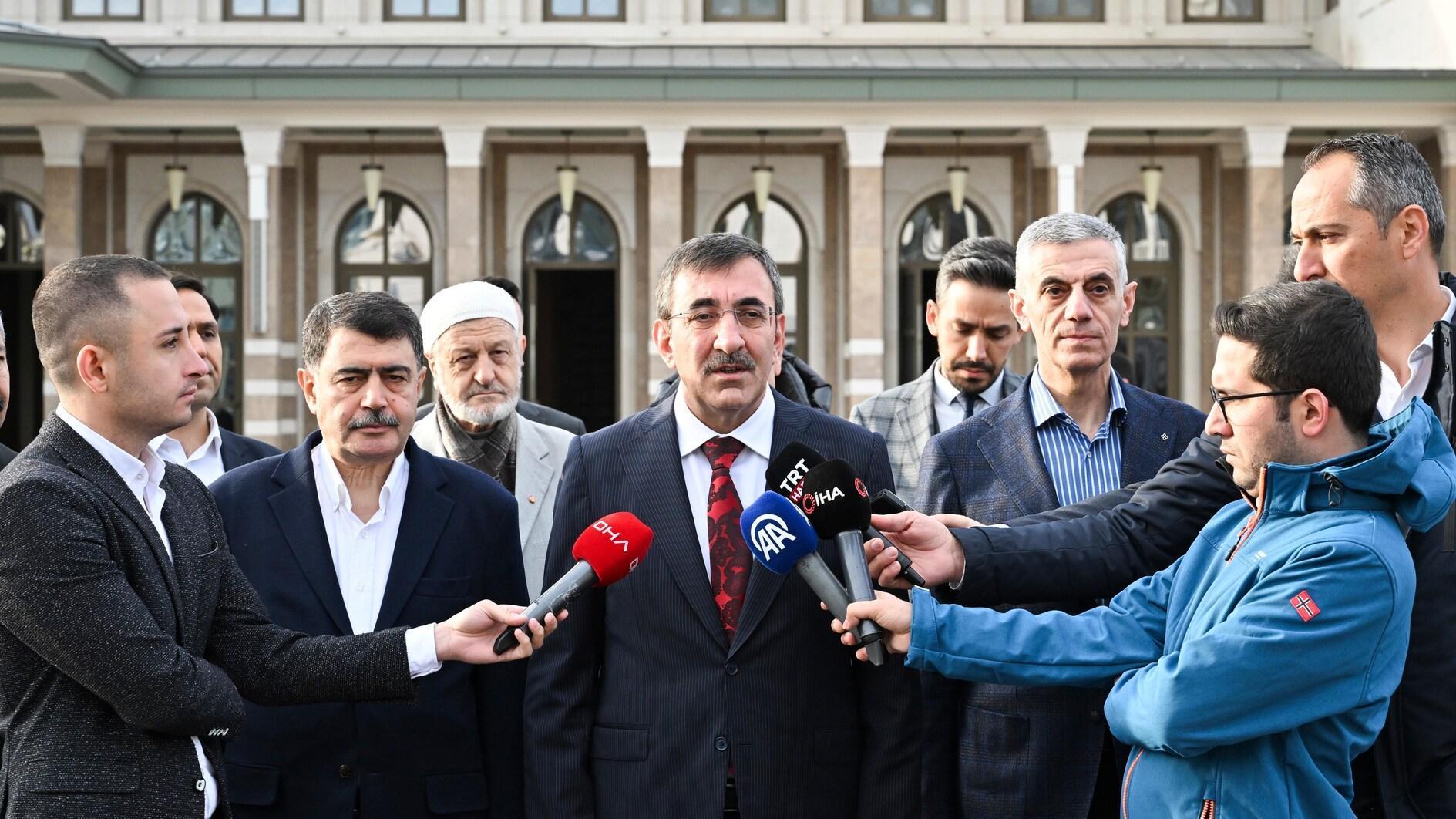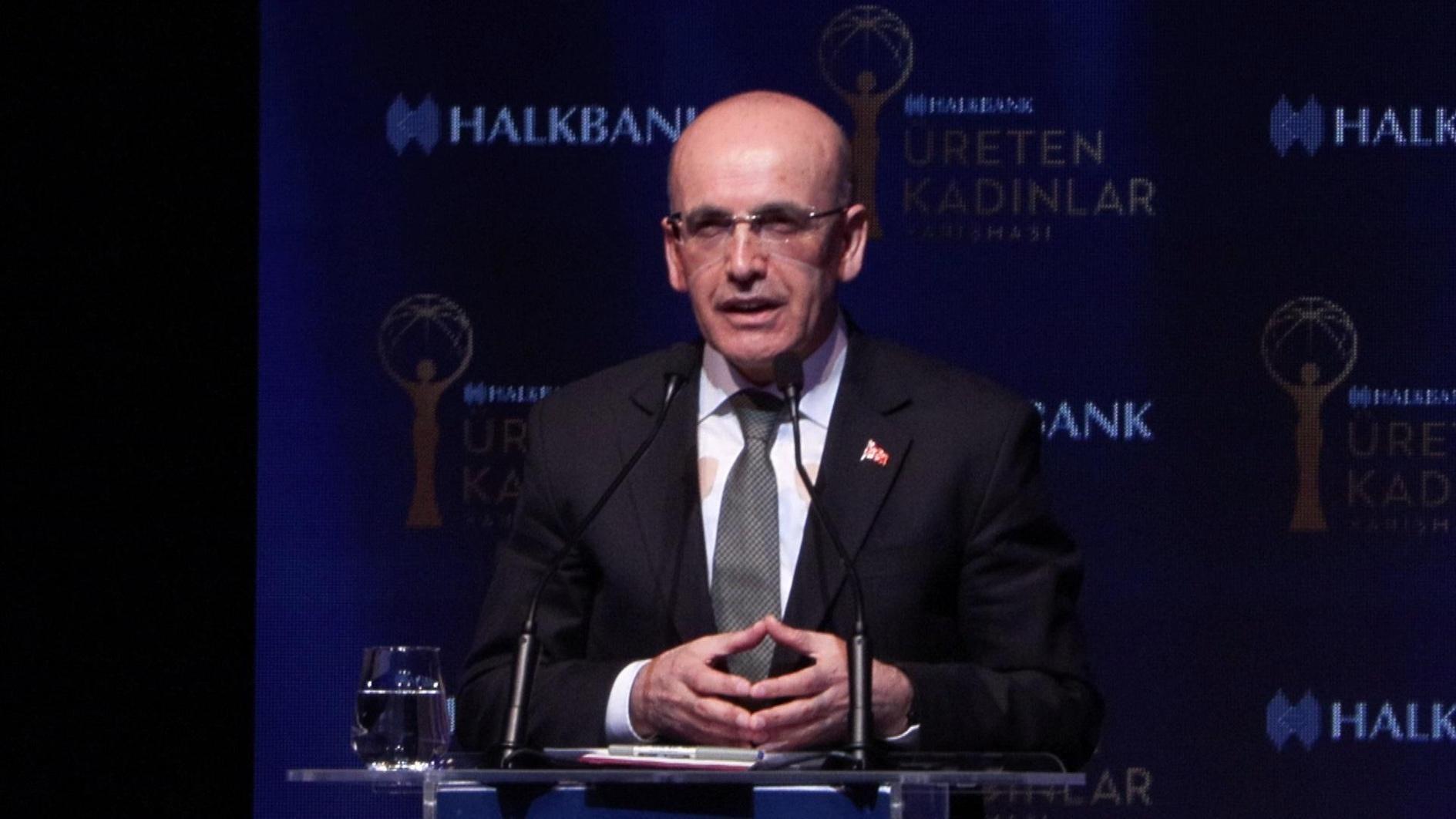UK: What Russia does in Syria is ‘aggression’
İpek Yezdani
 Russia’s bombing campaign in Syria is considered an “aggression,” since it targets the moderate opposition groups and civilians rather than the Islamic State of Iraq and the Levant (ISIL), according to Gareth Bayley, the U.K.’s special representative to Syria.
Russia’s bombing campaign in Syria is considered an “aggression,” since it targets the moderate opposition groups and civilians rather than the Islamic State of Iraq and the Levant (ISIL), according to Gareth Bayley, the U.K.’s special representative to Syria.“We completely condemn Russian actions on Syrian soil. Russia says it is hitting Daesh [ISIL] but a large majority of its operations are against the moderate groups, not Daesh, and hundreds of civilians are dying. That’s why what they do is an aggression,” Bayley told daily Hürriyet in a recent interview in Istanbul.
The U.K. joined the U.S.-led coalition in launching airstrikes against ISIL in Syria following a parliamentary vote for military action on Dec. 2. Russia began air strikes in northwestern Syria against ISIL and opponents of Syrian President Bashar al-Assad in late September.
“I think the Russians are claiming to fight terrorism but in fact they are attacking moderate people who believe in and stand for a better future for Syria. That’s why what they do is an aggression. Their attacks are eliminating hope, harming innocent civilians and probably leading to radicalization of Syrians of all sides. They could have focused on transnational jihadists and terrorists like Daesh and al-Nusra but this is not what they are doing now,” Bayley said.
At the same time, every state in the International Syria Support Group (ISSG) understands that Russia and Iran have positions in Syria, Bayley said.
“We recognize the fact that Russia is backing the [al-]Assad regime for now. We cannot ignore Russia’s or Iran’s position. Russia needs to protect her interests at minimum costs. But Russia will not want to conduct operations for an unlimited period of time to back a dictator who has failed. So Russia also has an interest in resolving that conflict. Everybody around the table knows there is just a fact of Russian power and Iranian actions, so we need to engage them diplomatically,” Bayley added.
Assad has ‘no place’ in Syria’s future
Bayley said according to the Vienna Declaration, there will be elections in Syria after 18 months and al-Assad was expected to leave in the transition process.
“On Bashar [al-Assad], our positon is very clear: He has no place in the future of Syria at all. He will be gone a long time before the elections. He will leave in a transition. The matter of how he will leave in the transition will be a decision for the Syrians in the negotiations, but we have a strong expectation that he will leave very early in the transition. But the idea that he can stay is impossible. Because if he stays then this will create only prolonged war and suffering for Syrian people,” he said.
Bayley added they judged the Riyadh conference as the most successful of three meetings held by different Syrian opposition groups last week.
“They brought together a very broad spectrum of internal and external opposition, and representatives of armed groups fighting on the ground. There were complaints from a few limited individuals that it was not inclusive enough. We welcome the Riyadh conference. There are no plans - as of now - to try to bring more Damascus oppositionists to the Riyadh conference or to bring further Kurdish representatives into the conference. We think Riyadh is a really strong effort and we will back it,” he added.
Bayley stressed ISIL can only be defeated by a combination of efforts.
“You need to be able to defeat ISIL militarily from the sky, militarily on the ground and politically. Ultimately ISIL draws its existence and energy from failure of the government, including in Syria. But some critics say there is no point in attacking ISIL if it is only from the air. But I would say it is necessary to attack from the air. You can especially prevent direct threats to our own countries and also to Syrians,” said Bayley.
Bayley mentioned that the types of British attacks against ISIL were tasked by the anti-ISIL coalition. “For example, we have attacked sources of oil revenue for ISIL. One of the capabilities of British attacks on ISIL is an ability to use very precise, very targeted weaponry which can hit ISIL targets without hitting innocent civilians”, he said.
The U.K. considered the Syrian-Kurdish People’s Protection Units (YPG), which Turkey considers an expansion of the outlawed Kurdistan Workers’ Party (PKK), as one element of the counter-ISIL effort in Syria, Bayley said.
“With the help of coalition air support, the YPG has successfully defended Kurdish areas from sustained Daesh attack. We consider them one element of the counter-Daesh effort in Syria. However, we are clear that Kurdish forces alone will not defeat Daesh alone, we need moderate Sunni Arabs to take ground in areas such as Raqqa. We also remain concerned about [Democratic Union Party] PYD/YPG links to the banned PKK terrorist group,” he added.
Bayley also drew attention to the fact the Vienna process was the first time a timetable had been set for elections in Syria, nothing however refugees would continue to leave the country.
“Refugees will continue to come, the winter will slow the rate of migration, but if the war continues like this then we can expect to see more refugee flows again in the spring and summer, which only emphasizes the bottom line that we have to fix this war. For Syria, for its neighbors, for the region, for Europe, we have to fix this. Syrians don’t want to live abroad. Every Syrian I speak to who lives outside the country says, ‘I miss home, I don’t want to be here, this is not my home.’ The Vienna process talks about safe returns, which means voluntary returns of Syrians to their homes. It’s a human catastrophe and the job of rebuilding Syria will be even harder. I think Europe understood that in a very profound way in the summer. People started to come from the region. Now that need and urgency are understood across Europe,” he said.
















